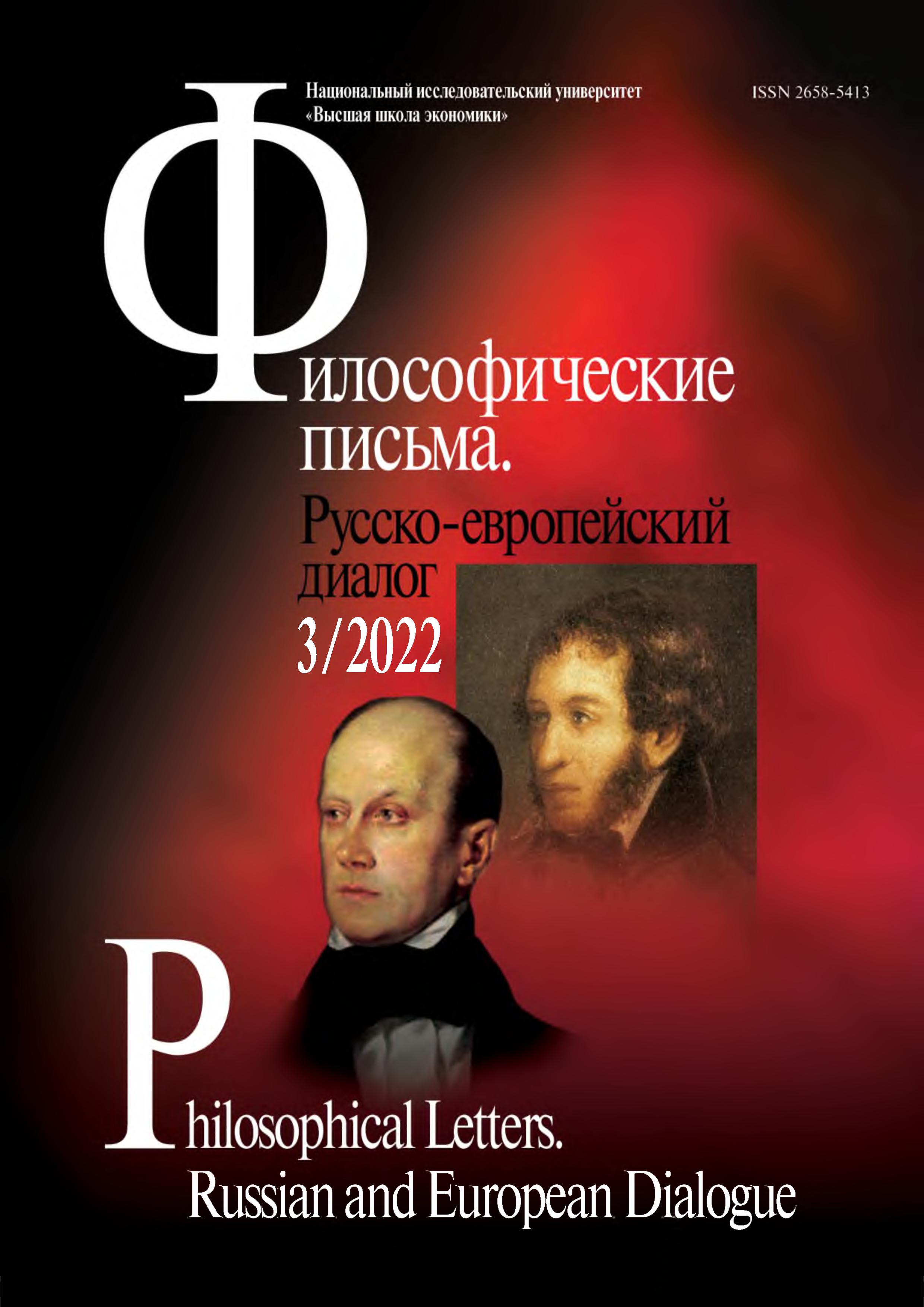The Mythologem of Peter the Great in D. S. Merezhkovsky’s Periodical Publications
Abstract
The article considers D. S. Merezhkovsky’s periodical publications, where the mythologem of Peter the Great is immersed in contemporary socioliterary agenda. While addressing rhetorical challenges formulated after the defeat of the First Russian Revolution, Merezhkovsky argued for a “new religious consciousness”. It justified the subjugation of Orthodoxy to monarchy by its future participation in the historical process of God-manhood, while the Russian intelligentsia was recognized as a driving force. The appearance of the Vekhi collection made it clear that his idea of the intelligentsia’s chosen nature and its unconsciously religious character had been debunked and found no support. Merezhkovsky called himself an heir of Peter (“I am Peter’s son…”), which enabled him to rely on the great authority and to justify the necessity of bloodshed. Merezhkovsky’s ideas of the people and intelligentsia, politics and social life, Orthodoxy and church revealed the abstract nature of his views. However, in several years as the echoes of the fi rst revolution subsided and the sociocultural situation began to change, he published an article entitled The poet of eternal femininity (1917). It placed the mythologem of Peter the Great in the “masculine”, “explicit” current of the Russian culture opposed to the current of Eternal Femininity. The active spirit inherent in Peter was also identifi ed by Merezhkovsky in Pushkin, Dostoevsky and L. Tolstoy. In his émigré articles he outlined a similarity between “Peter’s turnaround” and Bolshevism, contrasting Peter with the Russian people that passively acknowledged the revolution and refused to struggle for Russia’s European path.The article considers D. S. Merezhkovsky’s periodical publications, where the mythologem of Peter the Great is immersed in contemporary socioliterary agenda. While addressing rhetorical challenges formulated after the defeat of the First Russian Revolution, Merezhkovsky argued for a “new religious consciousness”. It justified the subjugation of Orthodoxy to monarchy by its future participation in the historical process of God-manhood, while the Russian intelligentsia was recognized as a driving force. The appearance of the Vekhi collection made it clear that his idea of the intelligentsia’s chosen nature and its unconsciously religious character had been debunked and found no support. Merezhkovsky called himself an heir of Peter (“I am Peter’s son…”), which enabled him to rely on the great authority and to justify the necessity of bloodshed. Merezhkovsky’s ideas of the people and intelligentsia, politics and social life, Orthodoxy and church revealed the abstract nature of his views. However, in several years as the echoes of the fi rst revolution subsided and the sociocultural situation began to change, he published an article entitled The poet of eternal femininity (1917). It placed the mythologem of Peter the Great in the “masculine”, “explicit” current of the Russian culture opposed to the current of Eternal Femininity. The active spirit inherent in Peter was also identifi ed by Merezhkovsky in Pushkin, Dostoevsky and L. Tolstoy. In his émigré articles he outlined a similarity between “Peter’s turnaround” and Bolshevism, contrasting Peter with the Russian people that passively acknowledged the revolution and refused to struggle for Russia’s European path.

